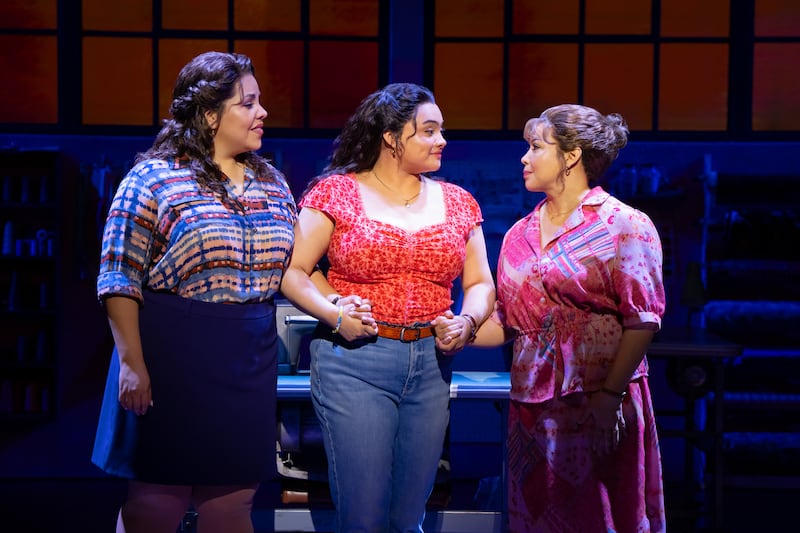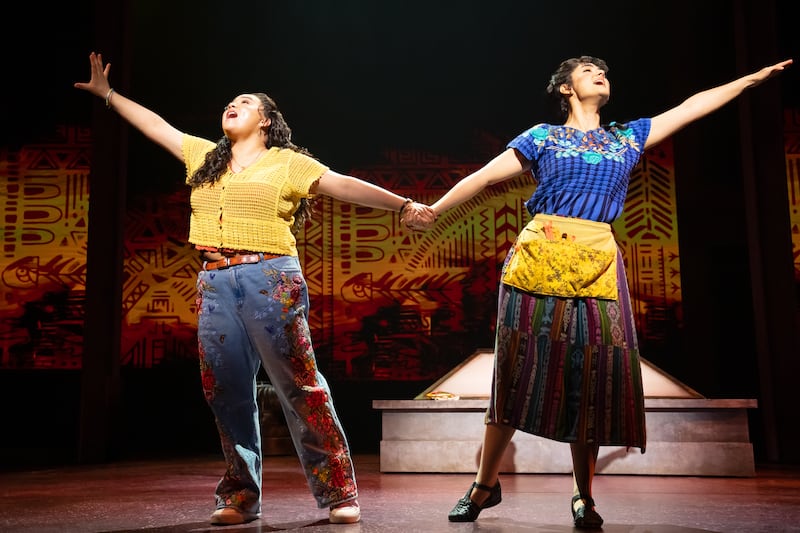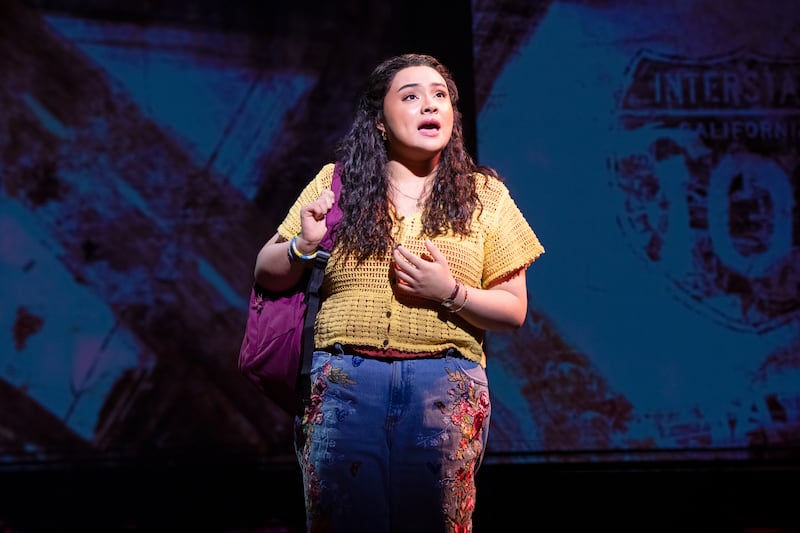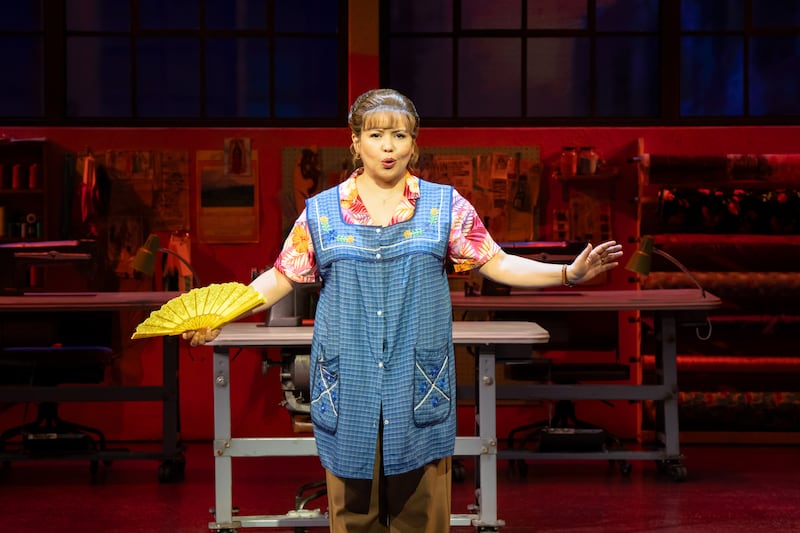How’s this for timing? The final Broadway show opening in time to vie for Tony Award nominations has one of the best show-stopping numbers of the entire season.
In the middle of the second act of Real Women Have Curves (James Earl Jones Theatre, booking to Oct. 5), the song “Curves”—featuring the group of Latina women and close friends who work as seamstresses in a small East Los Angeles clothing factory—sees the main cast stripped to their undergarments, singing loudly and dancing wildly in praise of being proud of the bodies they have.
The response of the audience to this joyous number—standing ovation, rapturous applause—says everything about how the song hits home with an audience all too aware of pressures and insecurities attendant on notions of the body beautiful.
The musical, directed and choreographed by Sergio Trujillo, is based both on Josefina López’s 1990 play and the 2002 movie (screenplay by López and George LaVoo) that launched America Ferrera’s career. López herself worked at such a factory when younger, recently telling the Los Angeles Times, “My intention was to show people the courage it takes to be a person who’s been marginalized and to still love yourself.”

In the musical—with music and lyrics by Mexican singer Joy Huerta (one half of the duet Jesse y Joy) and Benjamin Velez, and a book by Lisa Loomer and Nell Benjamin—a nearly-all Latino and Hispanic cast (many making their Broadway debuts) speak a notable amount of Spanish during the show, which feels both refreshing and right.
As a number, “Curves” is particularly important in this American Repertory Theater production, in which weight is an obsession of Carmen (Justina Machado), the judgmental mother of heroine Ana (Tatianna Córdoba). The latter has just gotten a scholarship to Columbia University, and—fearful of her mom’s response—first keeps the news to herself. Carmen’s insults aimed at her daughter’s size and the other women come in ugly bursts, although—unlike the movie—the musical grants her a route to redemption.
Ana is the only U.S. citizen among the characters, including older sister Estela (Florencia Cuenca), who owns the factory, and Carmen. The show is set in 1987 at a time when a Reagan-era amnesty program existed for undocumented immigrants to attain legal status. However, the amnesty was viewed with understandable suspicion by those concerned it was simply a trap.
A significant part of the story focuses on the fear engendered by immigration enforcement agents looking to detain the undocumented—and so the script feels acutely prescient today.

An underwritten subplot focuses on the plight of worker Itzel (Aline Mayagoitia), who ends up in detention and who sings a moving song, “If I Were a Bird,” about soaring above life’s challenges—and sh***ing on those below who deserve it.
Real Women is quietly radical in other ways: this is a show with a predominantly female cast (including Jennifer Sánchez, Carla Jimenez, Shelby Acosta, Sandra Valls), whose conversations, jokes, and songs are based on their thoughts, lives, fears, and hopes—not their relationships to men. Real Women passes the Bechdel Test with flying colors. One song, “Adios Andres,” is a hilarious meditation on periods, for good and ill.

Córdoba plays Ana as resolute personally and professionally, pursuing every dream she sees within her reach. She succeeds as a result of her intelligence, strength, and commitment to what is right. She’s spiky, she calls out hypocrisy and wrongdoing. She gets on with doing—and doing everything she believes in.
Mauricio Mendoza plays Raúl, Ana and Estela’s father and Carmen’s husband, as totally supportive and understanding of all the women in his life. His and Machado’s duet, “Life Is Like a Dance,” softly relates the story of their marriage and mutuality.

The show in some ways is formulaic, and the performances occasionally flatten too. Will a pivotal dress order be fulfilled? Will Ana go to Columbia with her mother’s blessing? Will Estela’s fashion talents be properly recognized? Will a seemingly malign rich customer, played by Claudia Mulet, receive the dressing-down she deserves?
The answers present themselves as you might expect, but the show is sung and performed with sincerity and heart, and its humor—particularly in family interactions and the fledgling romance of Ana and nerdy boyfriend Henry (Mason Reeves)—is tangy and sharp. Seeing Ana take control in a key bedroom scene is particularly cheer-worthy.
The show’s vibe of joy and strength is crystallized in a final parade of Estela’s winningly glamorous creations (designed by Wilberth Gonzalez and Paloma Young), underlining again the affirming sentiment of the show’s title. Unsurprisingly, the audience rises again to applaud with delight.
The post ‘Real Women Have Curves’ Fires Up a Huge Musical Showstopper appeared first on The Daily Beast.




